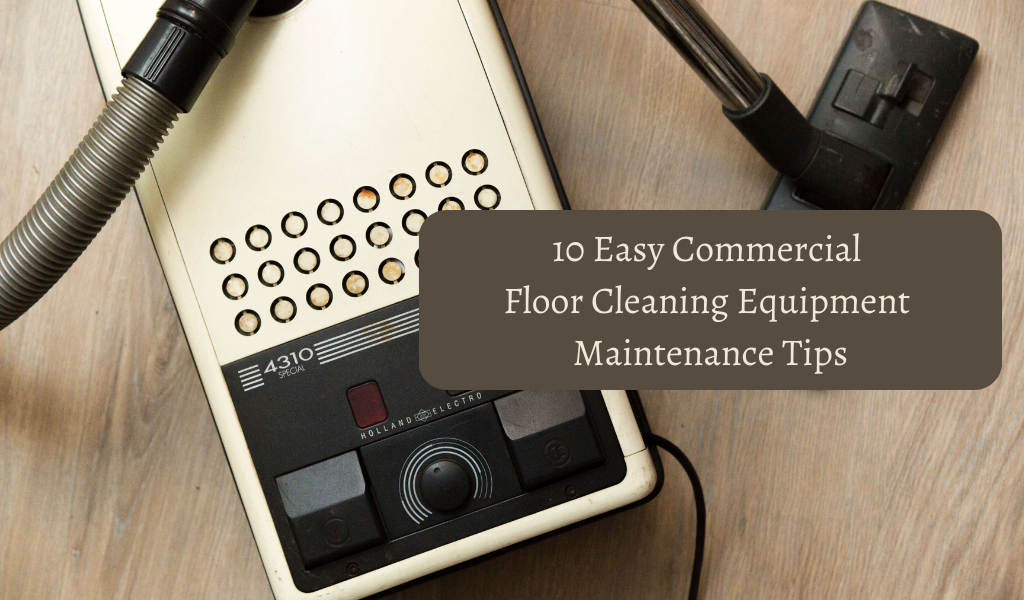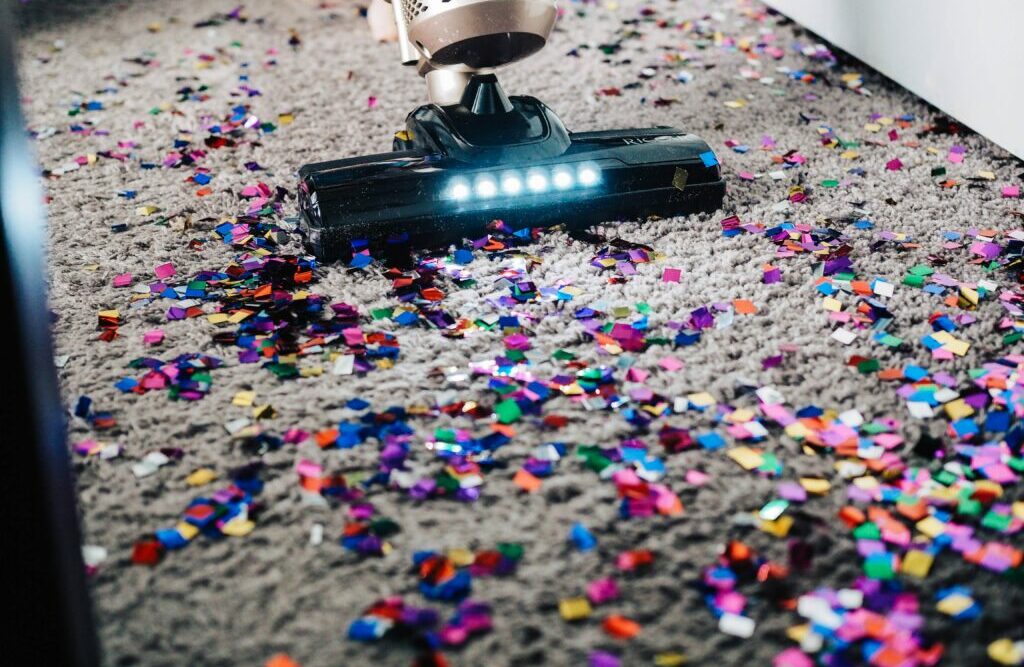You invest a lot in your commercial floor cleaning equipment. Here are some easy ways to take care of it.
Your commercial floor cleaning equipment is an important component of the work you and your team do. You need it every day when you go to work at different facilities and help your clients take care of their spaces.
Your commercial floor cleaning equipment is also a big investment. Your general-purpose floor machines retail for around $1,000, while even a “budget” model ride-on scrubber can retail for $7,000. And that’s on the lower end of things. It doesn’t take much looking around to find equipment with price tags well into the tens of thousands of dollars.
Clearly, this equipment is an investment in the success of your cleaning business. And it’s a vital part of your daily work. It’s not a surprise to anyone that you want to take care of this equipment so it lasts and works efficiently for a long time. Here are 10 tips to help keep up with maintenance so you can get the most from your tools.
Keep track of all your scheduled maintenance and other equipment needs. Schedule a free call with Janitorial Manager to learn how mobile-friendly scheduling software can help you keep your cleaning business running.
10 Easy maintenance tips to keep your commercial floor cleaning equipment in tip-top condition
Before we jump in, I’d like to point out that these are easy maintenance tips. You don’t need any special knowledge or tools for most of these. You might need to consult your owner’s manual for some of these tips, but even then the whole point is that they are easy enough for anyone to do.
At some point, your commercial floor cleaning equipment will need more extensive maintenance or even repairs. Before things get to that point, however, there are so many steps you can take to keep everything in good shape and running efficiently.
1. Clean your equipment. This might seem obvious, but it’s so easy to overlook. It’s understandable, too. Your team spends hours caring for your customers’ floors, windows, carpets, bathrooms, and everything else. When the end of the day comes around, your equipment gets locked into a closet or loaded into a van and likely forgotten about until the next shift.
But taking just a few minutes at the end of each day to clean your equipment will help it stay in good working order. Clean off any dust, dirt, spills, and splatters. When grime builds up, it can work its way into gears, motors, filters, and other areas where it can compromise the machine.
2. Clean or change filters. Not all of your commercial floor cleaning equipment will have filters, but those that do are usually easy enough to get to. A dirty filter will cause your equipment to run poorly and yield less-than-desirable results. How often you need to clean or change your filters will depend on factors like the manufacturer’s recommendation, how often you use the equipment, and the conditions under which you operate the equipment. Once you get an idea of the frequency, though, it’s a good idea to plug that into your maintenance checklist.
3. Drain and clean tanks. Solution and recovery tanks should be emptied and cleaned after each use. This helps your equipment function more efficiently, and it also helps avoid the build-up of odors and bacteria.
4. Clean or replace the squeegee. Give the squeegee blade a rinse and ensure it is free of any dirt or debris.
5. Clean vacuum brushes. The brushes on your vacuum are much less efficient when they have hair, dust, strings, and other debris wrapped around them. A few minutes of ensuring clean brushes can make your job so much easier.
6. Clean or replace pads. It’s a good idea to check the pads on scrubbers and burnishers before and after each use. Pads can seem fine one minute and need to be replaced the next.
7. Check and charge any batteries. For any of your commercial floor cleaning equipment that runs on batteries, it’s important to start a shift fully charged. Additionally, check the connections and terminals to ensure they are secure and clean. Some batteries may need to maintain specific levels of water, in which case you’ll need to check and add distilled water if needed. Check your user’s manual for the specifics on that.
8. Inspect hoses. A quick inspection of the hoses on your equipment should be enough to notice any excessive wear or cracks. You might be able to get through a shift or two by duct-taping these, but it’s best to replace worn hoses as soon as possible.
9. Lubricate moving parts. This won’t apply to all of your equipment, so check your user’s manual. If you can lubricate moving parts, and the manual recommends it, be sure to add this to your maintenance checklist. Regular lubrication will keep things moving smoothly.
10. Don’t ignore regular professional maintenance. While there is a lot you can do to maintain your commercial floor cleaning equipment, some maintenance tasks call for a professional. If the manufacturer suggests specific maintenance tasks that require specialized knowledge or experience, add the dates to your calendar and enlist the help of a professional repair person.
You invest in and rely on your equipment. Make sure it works for you by following a maintenance schedule with these easy tasks. Your equipment will last longer and work better because of it.
From maintenance schedules to task lists to work orders, Janitorial manager can help you organize your operations. Schedule a free call with Janitorial Manager to learn more.


